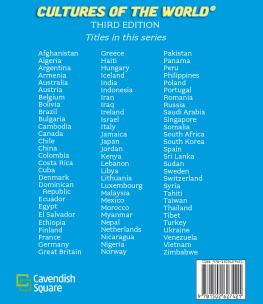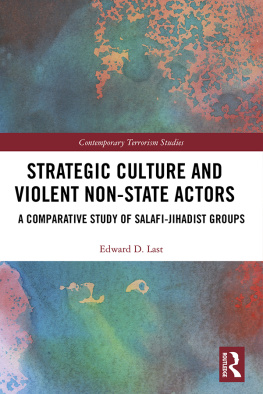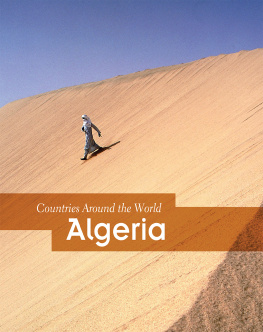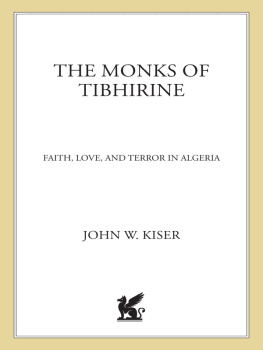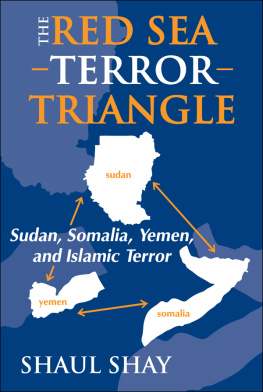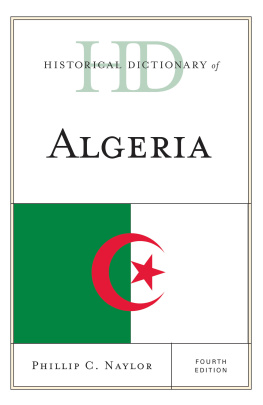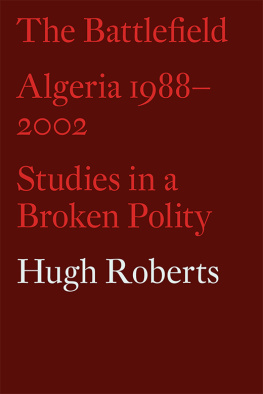ROBERT FISK ON
ALGERIA
19922013

Contents
ROBERT FISK ON
ALGERIA
1992-2013
A new front has opened in the global "war on terror", in the deserts of north Africa. Islamic extremists, loosely affiliated to al-Qa'ida, are attacking Western interests in an "arc of insecurity" stretching from Senegal to Somalia, with the fiercest recent action in Algeria and Mali.
Such outbreaks can be traced in part to the Arab Spring, and the side-effects of, for example, the fall of Colonel Gaddafi in Libya. But there is also another, darker source: the legacy of years of horrifying sectarian bloodletting in Algeria.
Rarely has a nation's suffering been so under-reported. More than 150,000 people have been killed by their fellow Algerians, mostly with sickening cruelty, since a general election won by the Islamic FIS party was annulled in 1992. The violence has slackened since 1999, when an amnesty induced many rebels to lay down their arms, but it has never stopped, and the scars on the national psyche will take decades to heal.
Meanwhile, the power and influence of the fighters who call themselves Al-Qa'ida in the Islamic Maghreb has been growing inexorably. Finally, with the insurgency in Mali and the hostage-taking and massacre at the In Amenas gas field in January 2013, Western leaders and the Western public have been forced to confront a problem that has hitherto passed under their radar.
For those seeking to understand why Algeria's tragedy matters, and what it means, there is no better place to start than here: a collection of contemporary reportage by the world's pre-eminent Middle-East correspondent, Robert Fisk, who raised the alarm about what was happening in Algeria while the rest of the world looked away.
The edited collection of articles that follows spans two decades, chronicling first-hand what happened when a nation's failure to reconcile its ideological differences led both sides to descend into barbarity.
Much of it is harrowing to read: a catalogue of man's inhumanity to man, punctuated with shining instances of courage, kindness and humour but no less tragic for that.
But it is the truth. And for anyone who wishes to understand the problems confronting us today, it is essential reading.
1992
13 January 1992
AN EXPERIMENT IN DEMOCRACY ENDS
THE STOLEN ELECTION
ALGERIA'S government last night in effect introduced martial law and stripped its Islamic opposition of a democratic election victory by cancelling Thursday's second round of voting. Their decision officially taken by the "Higher Security Council" formed yesterday after President Chadli Bendjedid's resignation on Saturday takes Algeria to the brink of civil conflict and ends its experiment with democracy.
Only hours earlier, Algeria's Islamic leaders stunned at finding the army in effective control of the country they thought they were about to rule had warned they would not tolerate any attempt to cancel the second round of elections, which they expected to win. But the government has undergone a quiet coup d'etat, which has left generals, rather than politicians, in charge. The largest political party the Islamic Salvation Front (FIS), which won three million votes in the first round of elections last month is now in open confrontation with the army.
Late last night, paramilitary police roadblocks were set up on motorways leading to the capital, with military checkpoints on other roads. All day, armoured personnel carriers and troops had been positioned around the principal government buildings in Algiers the Prime Minister's Office, the Foreign Ministry, the Post Office, Treasury and radio stations and Algerian commandos with fixed bayonets on their rifles could later be seen patrolling streets in the south of the city.
Supporters of the FIS, whose impressive victory in the democratic elections on 26 December provoked the constitutional crisis, cancelled a rally at the Martyrs' Memorial on the hills above Algiers and carefully avoided any conflict with the army.
But last night's demand from the FIS's acting leader, Sheikh Abdelkader Hachani, suggests that now the party has been cheated of its election victory, violence is almost inevitable between the army and the Muslim fundamentalists who want to create an Islamic republic. Describing Mr Chadli's resignation as "a piece of theatre" intended to cancel the election results and prevent the second poll in three days' time, Sheikh Hachani told his supporters to "stay vigilant and ready to abort any plot aimed at liquidating our project of an Islamic state ". The imprisoned FIS leadership should be freed, he said, and the government the "professionals [sic] of despotism" should not be allowed to steal the jihad [holy war] from the FIS.
He was no more specific than that, although few doubt the FIS despite its denials possesses some form of military organisation. FIS suporters sometimes refer to their "Islamic commandos". The 170,000 strong Algerian army contains two commando divisions trained to put down civil disorder
The leader of the "Higher Security Council" is a figurehead, Abdelmelek Benhabyles, a 70-year-old former diplomat and judge who presided over the Constitutional Council which took over the functions of the head of state. Not only did he decide to cancel the elections, but he made no mention of the presidential poll which, under the constitution, should be held within 45 days. Sid Ahmed Ghozali, still nominally Prime Minister, was at one point said to be considering standing.
However, the "Security Council" includes two powerful army generals the Ministers of Defence and Interior and it is they rather than the gentle ex-lawyer who officially runs the emergency cabinet, who must now be regarded as the decision-takers.
The fact remains that the FIS has sworn it will not be deprived of its election victory and is now bound to take action against the authorities. Neither last night's destruction of Algeria's fragile democracy nor the blighting of the Islamic party's electoral hopes will help leaders in other Arab states in Egypt for example who have always insisted fundamentalism should channel its energies through the ballot box rather than through violence. The election victory internationally regarded as fair if politically unfortunate has been taken away from the FIS, so what other means does it have to gain power?
13 January 1992
THE WAR OF MYTHS
HAND-OVER THAT SHOWS WHERE THE REAL POWER LIES
AROUND the walls of the Museum of the Martyrs, beneath the massive concrete wings of the memorial to more than 1 million Algerians who were killed in the War of Independence against the French, the stranger to Algiers can see all he wants of cruelty and oppression.
The museum curator plays Beethoven's Pastoral Symphony and Brahms's violin concerto over the audio system as if it were necessary to soften the evidence of barbarity. There are French military documents demanding the arrest of guerrilla leaders. There are shackles, whips and guns. Thirty-year-old posters, printed in secret by the National Liberation Front (FLN), inform the resistance movement that it is "the beacon of African socialism". There are monochrome photographs of Algerian "marchers" and tortured men, their faces shattered or running with blood at the hands of General Massu's 10th Parachute Division. And there is a showcase filled with the paraphernalia of the French military police, of bullets and cartridges and a small metal object in the shape of a pineapple, neatly labelled: "US Mark 2 Defensive Fragmentation Grenade".


